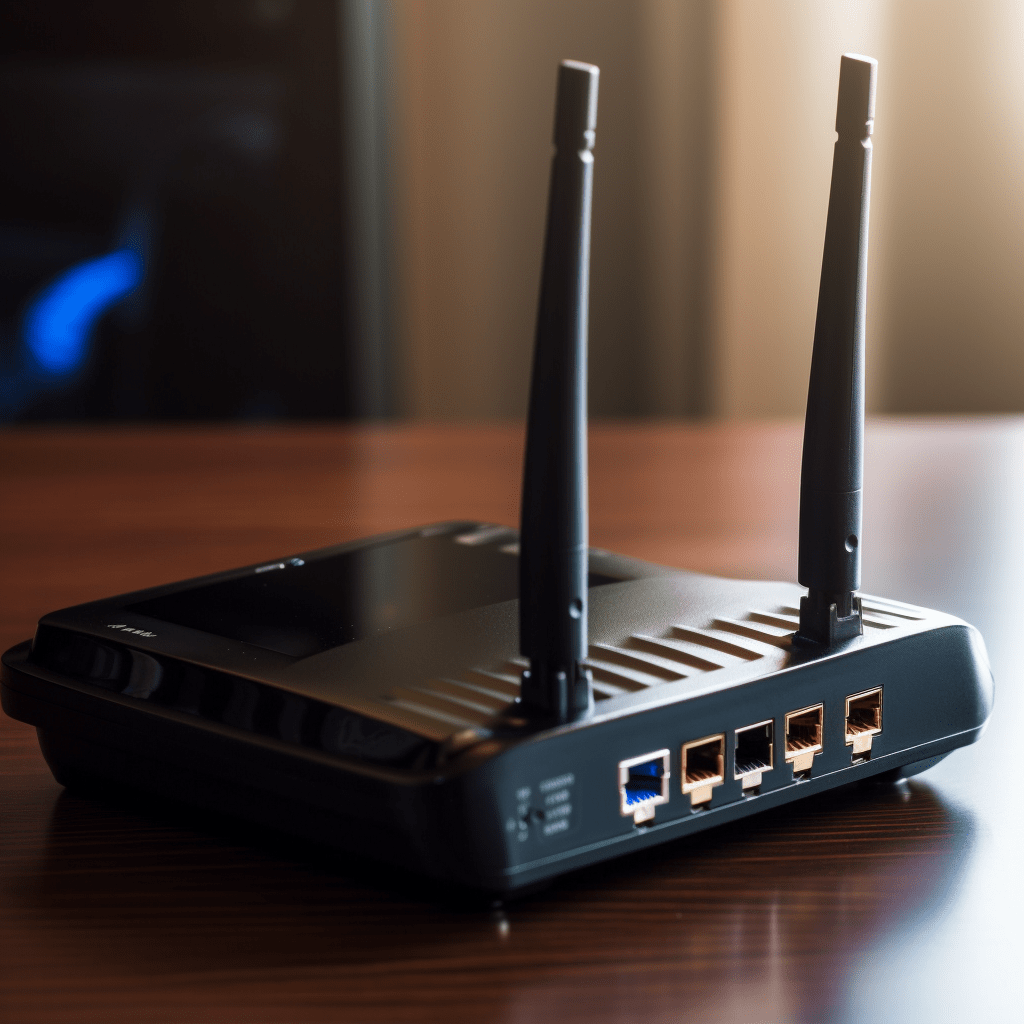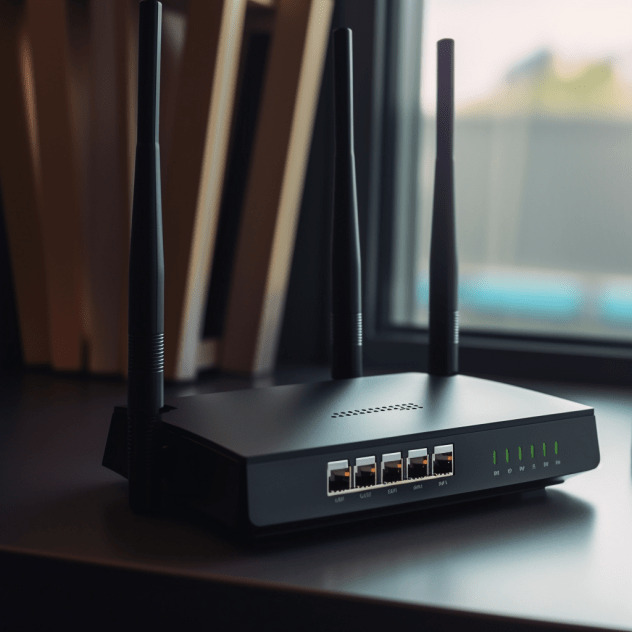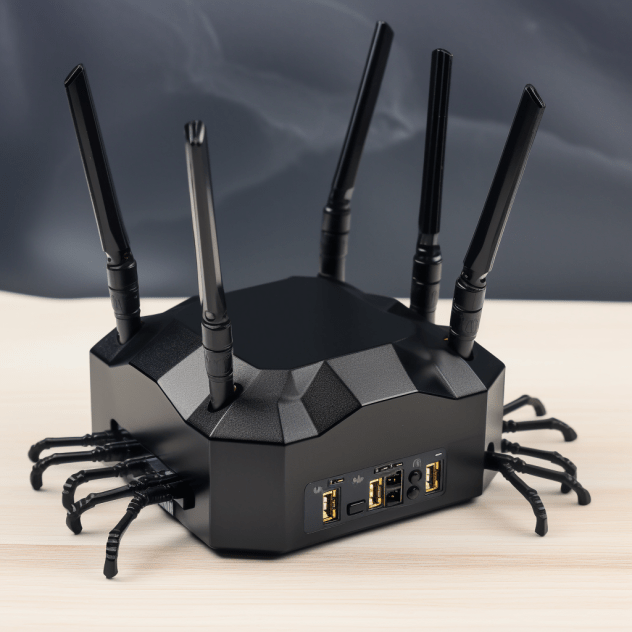As a cybersecurity professional, you know that Wi-Fi hacking is a complex process that requires specific tools and equipment. One of the most common questions that you might encounter is whether to use a WLAN adapter or the built-in Wi-Fi on your device.
In this article, we’ll compare the pros and cons of both options, helping you determine which one is right for your security testing needs.
A Comprehensive Comparison of WLAN Adapters vs Built-In Wi-Fi for Cybersecurity Professionals
When it comes to Wi-Fi hacking, WLAN adapters are the go-to option for cybersecurity professionals. These adapters are specifically designed to handle the complex tasks required for security testing, such as packet sniffing and injection. With their powerful capabilities and advanced features, WLAN adapters provide a level of control that is simply not possible with built-in Wi-Fi.
However, there are some drawbacks to using WLAN adapters as well. For one, they can be quite expensive, especially if you need to purchase multiple adapters for different tasks. In addition, not all adapters are created equal, and some may not work as well with certain operating systems or devices.
It is also important to note that using WLAN adapters for hacking purposes may be illegal in certain jurisdictions, so it is important to check your local laws before proceeding.
Despite these limitations, WLAN adapters remain a popular choice for cybersecurity professionals who need the power and flexibility they provide. By carefully weighing the pros and cons of WLAN adapters vs built-in Wi-Fi, you can choose the option that is best suited to your specific needs and goals.

Built-In Wi-Fi: Which is Right for Your Security Testing Needs?
When it comes to WLAN adapters vs built-in Wi-Fi for hacking and security testing. Many people automatically assume that external hardware is superior. However, built-in Wi-Fi can still be a useful tool in certain situations. While it may not have the same advanced features as WLAN adapters, it can still be used for basic security testing.
One of the main advantages of using built-in Wi-Fi is cost. WLAN adapters can be expensive, and not everyone has the budget to invest in one. If you only need to perform basic security testing, such as checking for open ports or detecting nearby networks, the built-in Wi-Fi on your device may be sufficient. Additionally, using built-in Wi-Fi can be more convenient since you don’t have to carry around an additional piece of hardware.
Built-in Wi-Fi, however, has limitations, mainly in terms of range, as its antenna is typically smaller and less powerful than that of a WLAN adapter, resulting in a shorter range. This may make it challenging to detect networks that are far away. Moreover, built-in Wi-Fi may not offer some of the advanced security features that a WLAN adapter can provide, like packet injection.
In conclusion, while built-in Wi-Fi may not be as powerful as a WLAN adapter. It can still be a viable option for basic security testing, especially for those on a budget. However, if you need more advanced features or a longer range, a WLAN adapter is likely the better choice.
The Pros and Cons of Using a WLAN Adapter for Wi-Fi Hacking
When it comes to Wi-Fi hacking, WLAN adapters have become increasingly popular among cybersecurity professionals. These adapters offer advanced features, including packet sniffing and injection, making them a valuable tool for security testing. However, there are also some drawbacks to using a WLAN adapter.
Pros of using a WLAN adapter:
- Advanced features: WLAN adapters are specifically designed to handle complex tasks and offer a range of advanced features.
- Increased range: Many WLAN adapters come with a high-gain antenna, allowing for increased range and better signal strength.
- Customization: WLAN adapters offer more customization options than built-in Wi-Fi, making them a better choice for those who need greater control over their hacking setup.
Cons of using a WLAN adapter:
- Cost: WLAN adapters can be expensive, particularly those with advanced features and high-gain antennas.
- Setup time: WLAN adapters may require additional setup time and configuration, particularly if the user is not familiar with the software and drivers needed to make them work.
- Compatibility: Some WLAN adapters may not be compatible with certain operating systems or devices.
Using a WLAN adapter has some drawbacks, but cybersecurity professionals find them useful due to their advanced features and customization options. However, beginners or those who don’t require advanced features may find that their device’s built-in Wi-Fi suffices. Ultimately, users must consider their specific needs and budget before deciding whether to use a WLAN adapter or built-in Wi-Fi.

The Dark Side of WLAN Adapters: Exploring the Legal and Ethical Concerns of Wi-Fi Hacking
There are potential legal and ethical concerns that cybersecurity professionals should be aware of. These concerns are important to understand to avoid any legal issues or ethical dilemmas that could arise from using these tools for malicious purposes.
Legal concerns
One of the main legal concerns is the violation of laws and regulations related to unauthorized access to computer systems and networks. Using WLAN adapters to hack into networks without permission is illegal and could lead to criminal charges. It is important for cybersecurity professionals to only use these tools for ethical purposes, such as testing the security of their own networks or with permission from the owners of the network.
Another legal issue that could arise is the violation of privacy laws. WLAN adapters are capable of capturing and intercepting data packets, which could contain sensitive and private information. Ensuring that the data captured is not used for malicious purposes or in violation of privacy laws is important. Cybersecurity professionals should also ensure that they are not violating any wiretapping laws or regulations when using WLAN adapters.
Ethical concerns
When using WLAN adapters for hacking, it’s crucial to consider the legal and ethical concerns. Misusing these tools, such as stealing personal or financial information, is highly unethical and could harm individuals or organizations. Cybersecurity professionals must use these tools ethically. Such as identifying vulnerabilities in their own networks or helping organizations improve their security measures, and with caution.
Misusing WLAN adapters can potentially harm innocent parties. As they can be used to launch attacks on networks, which is another ethical concern to consider. It is important to take precautions to prevent unintended harm and to use these tools responsibly.
Final Thought
When deciding between WLAN adapters and built-in Wi-Fi for hacking and security testing, it’s crucial to carefully consider the pros and cons of each option. Although WLAN adapters offer advanced features and customization options. They can be expensive and may not be legal in certain jurisdictions. Conversely, built-in Wi-Fi can be a more budget-friendly option for basic security testing. Regardless of the option chosen, it’s essential to be aware of the legal and ethical concerns associated with using these tools.
As a cybersecurity professional, it’s your responsibility to use them ethically and responsibly to ensure the safety and security of computer systems and networks.
So, if you want to learn more about the best WLAN adapters for hacking, make sure to check out our article “8 Best WLAN Adapters for Hacking” to find the one that suits your needs and budget.





[…] WLAN Adapters vs Built-in Wi-Fi […]
[…] wrapping up, be sure to check out our related article „WLAN Adapters vs Built-In Wi-Fi: Which is Better for Hacking?“ for an in-depth comparison of WLAN adapters and built-in Wi-Fi capabilities in the context […]
[…] hacking device is right for you, be sure to delve deeper into the realm of white-hat hacking and WLAN adapters, and don’t miss the informative article on the “8 Best WLAN Adapters for White-Hat […]